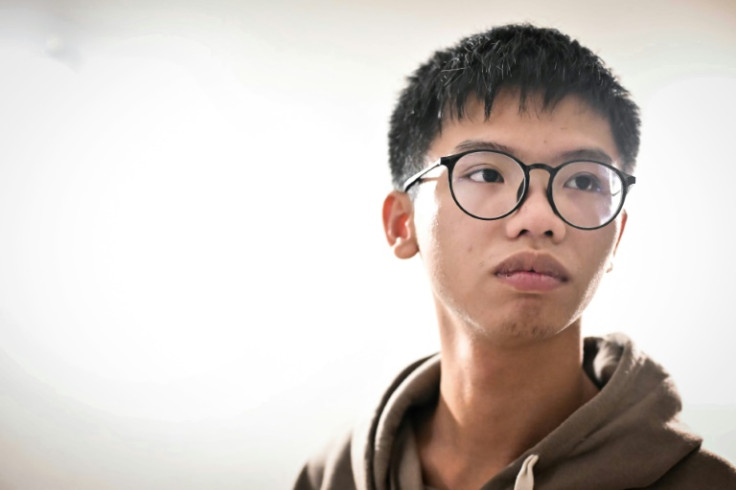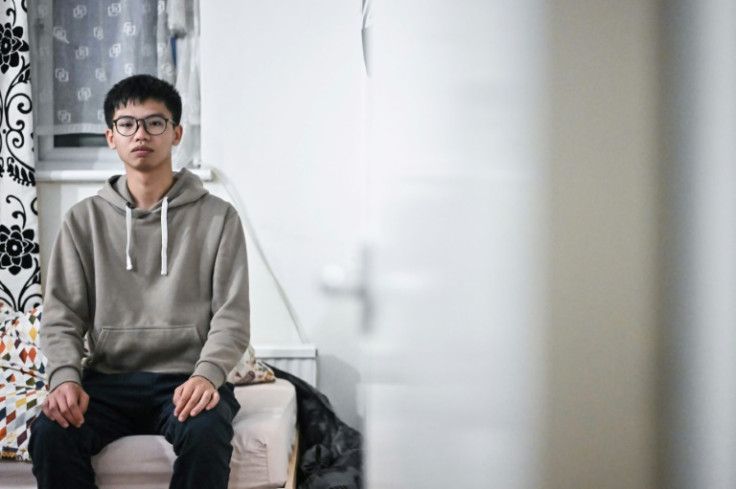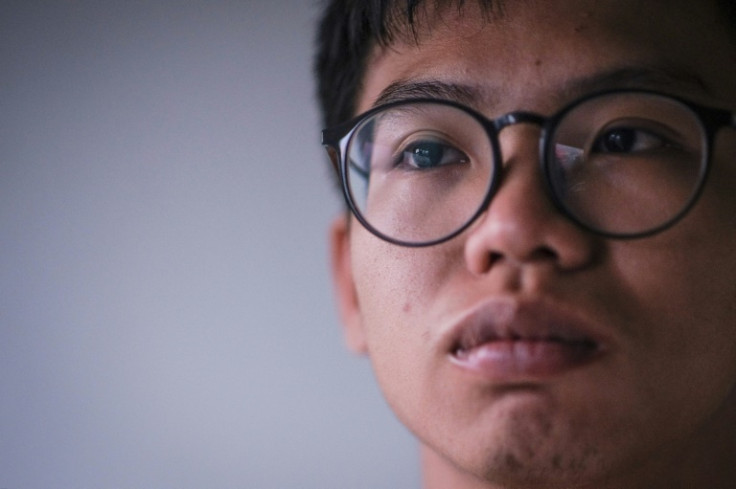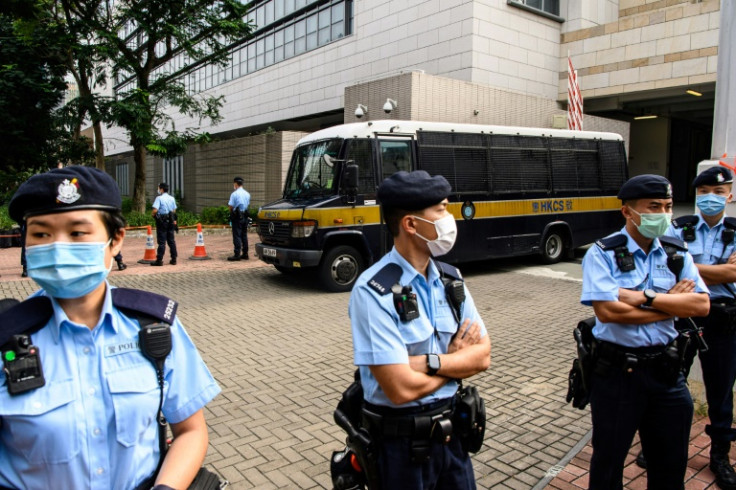
A few days before Christmas, Hong Kong activist Tony Chung boarded a flight to Okinawa, Japan, carrying nothing but a backpack -- his casual appearance a ruse to hide plans to seek political asylum in the UK.
Chung was among the youngest people in Hong Kong to be convicted under a sweeping national security law imposed by Beijing, and had finished serving time six months before.
Fresh out of prison, he found that he remained under the thumb of the authorities, particularly the national security police, who pressed him to become an informant and take a trip with them to China.
"Not only do they completely control my life and interfere with it, their actions affect my personal safety and put my life in danger," Chung, 22, told AFP in an interview from Britain on Friday.
Taking HK$40,000 ($5,100) with him, Chung left Hong Kong last week after he promised his overseers he would come back after a short vacation. Once in Okinawa, he bought a ticket for London.
Chung is among a growing list of Hong Kong activists who have sought refuge overseas, as city officials and Beijing vow to hold them accountable.
He wrote a long public post on Facebook detailing his escape after landing at Heathrow Airport on Wednesday, a move that turned him into a fugitive in the eyes of the Hong Kong government.
On Friday, a spokesperson for the Chinese embassy in the UK urged Britain to "bring (Chung) to justice as soon as possible and repatriate him to Hong Kong".
Asked if he felt safe, Chung said the UK would not accept Hong Kong's attempt to paint him as a criminal.
"I believe the UK government would not agree with how China's government has implemented the national security law in Hong Kong to suppress Hongkongers," he said.
In 2016, Chung was a high school student when he led the group "Student Localism", which called for Hong Kong's independence from China.
Considered a redline for Beijing, calling for separation from China was a fringe view in the former British colony.
Student Localism ceased its local operations in 2020 just before Beijing's national security law took effect in response to the huge and sometimes violent democracy protests the previous year.
Despite authorities saying the law would not be retroactive, Chung -- then 19 years old -- was arrested for secession in July 2020 and granted bail.
He was arrested again three months later outside the United States consulate in Hong Kong, where he said he had been trying to seek political asylum.
He later pleaded guilty to secession and money laundering in connection with donations taken for his group, and was sentenced to three and a half years behind bars.
In prison, he said he witnessed the nascent stages of Hong Kong's "deradicalisation" program -- partly consisting of patriotic movie screenings, Chinese history lectures and cultural performances.
"(Prison officials) lectured us with a pitying tone, saying we were exploited, that we were bought by Americans to disrupt China's development," Chung said.
In June, Chung said he was granted early release after agreeing to strict limits on speech, movement and employment.
Another source of stress was Hong Kong's national security police, who would pay him between HK$500 and HK$3,000 for information on people in his circles.
"They never offered me a choice, they just said this (arrangement) would happen," Chung said.
"I can only accommodate them, and let them think I fit their idea of rehabilitation."
Asked about Chung's informant claims, Hong Kong police said it "has been effectively collecting intelligence... through various channels, means and individuals".
The final straw came when national security police suggested taking him on a trip to mainland China.
"I could not speculate what their aim was. What I can say is I felt a very immediate threat," he said.
Police dropped the idea when he objected, but he believed that future requests may be harder to turn down.
Fleeing to the UK felt "unreal", until his flight touched down and British immigration officers secured plastic tags on his luggage -- standard procedure for asylum claimants, he was told.
Chung stopped short of discussing his plans for the future, only saying he wanted to "continue to contribute" to Hong Kong.
"Since long ago, I have thought about the prospect of being jailed and being forced to leave Hong Kong," he said.
"But when I actually took the path that may lead me away from Hong Kong forever... I would hope that I can one day return."










